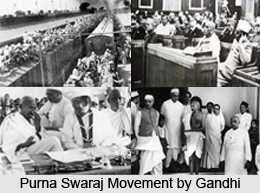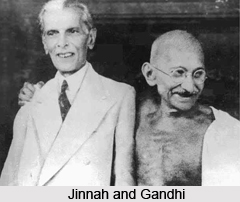 Background of Purna Swaraj or complete independence of undivided India can actually be traced before the start of Dandi March. Much before the year 1930 very few Indian political parties had but openly embraced the goal of political independence from the British.
Background of Purna Swaraj or complete independence of undivided India can actually be traced before the start of Dandi March. Much before the year 1930 very few Indian political parties had but openly embraced the goal of political independence from the British.
All India Home Rule League
The All India Home Rule League had been going for the Home Rule Movement in India: dominion status within the British Empire, as granted to Canada, Australia, the Irish Free State, Newfoundland, New Zealand and South Africa.
Muslim League and Purna Swaraj
All India Muslim League favoured dominion status as well and also opposed calls for direct Indian Independence. The liberal party, by far the most pro-British explicitly opposed to India`s freedom and even dominion status if it weakened India`s links with the British Empire. The largest political party of the time, Indian National Congress, was at the head of national debate. Bal Gangadhar Tilak, Aurobindo Ghosh and Bipin Chandra Pal, the veteran congress leaders advocated explicit Indian independence from Empire.
Jalianwalabagh Massacre
After the Jalianwalabagh Massacre in 1919, there were some serious outrages among the people, against British rule. Europeans, officials and civilians were targets and victims of violence across India. In the following year in 1920, Mahatma Gandhi and Congress committed to Swaraj describes as spiritual and political independence. At that time Gandhi actually described this as the basic demand of all the people of India. He categorically said that the question of whether India would remain within the Empire or leave it absolutely would actually be answered by the response and behaviour of the British. Between the year 1920 and 1922, M K Gandhi led the non-cooperation movement - nationwide civil disobedience to oppose the Rowlatt Act of 1919 and the exclusion of Indians from the government of their own country and affairs, and the denial of political and civil freedoms.
Simon Commission and Nehru Report on Purna Swaraj
In the year 1928 the British government further angered people across the country by appointing an all-European Simon Commission to deliberate on constitutional and political reforms for India. As a matter of fact, no Indian were included in the commission and nor were any member of the political parties. With arrival in India, Chairman Sir John Simon and other member of the commission were met with agitated public which followed them everywhere. The death of prominent Indian leader named Lala Lajpat Rai due to severe beating outraged the public further.
Purna Swaraj and Indian National Congress
The Indian National Congress selected an all-Indian commission to propose constitutional reforms for India. Members of other Indian political parties joined the commission led by Congress President Motilal Nehru.
Demand of Nehru Report
The Nehru Report demanded that India be granted self-government under the dominion status within the Empire. While most other Indian political parties supported the Nehru commission`s work, it was opposed by the Indian Liberal Party and the All India Muslim League. The British ignored the commission, its report and refused to introduce political reform.






































